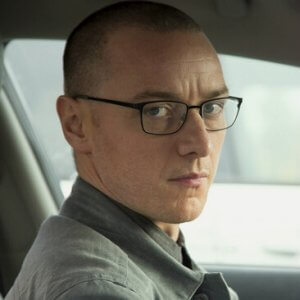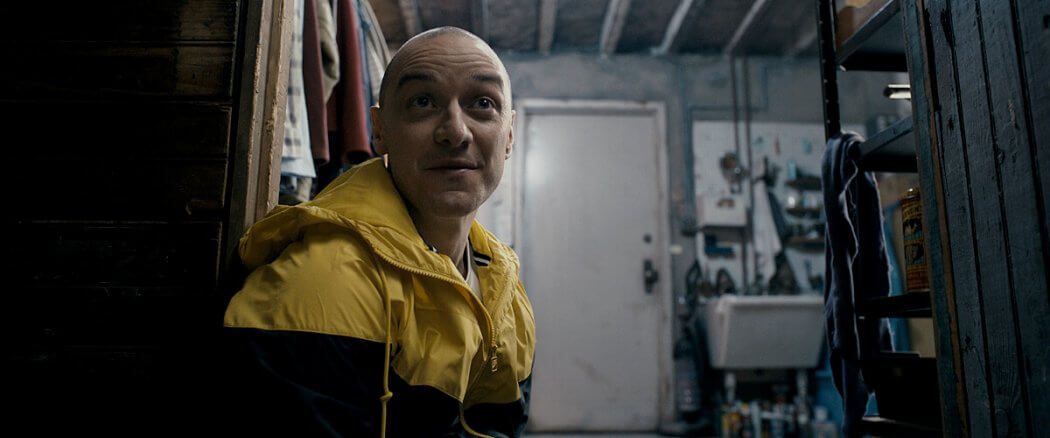Ever since Newsweek dubbed him “The Next Spielberg” in July 2002, M. Night Shyamalan has had a rough go in Hollywood. That’s not to say he’s hurting for monetary success: An IMDB list in 2014 — following his critically maligned After Earth — listed Shyamalan as one of 30 most profitable filmmakers currently alive, above names like Martin Scorsese and Bryan Singer. But from 2004 through 2013, Shyamalan’s career was torpedoed by a series of career choices that turned him from rising star to industry punching bag. Audiences aren’t quick to forgive or forget films like The Happening, The Last Airbender, or After Earth.
And yet Shyamalan’s career has seem to hit a bit of a renaissance run as the director nears his fiftieth birthday. His horror-comedy The Visit was well received in 2015, and for good reason. It marked a playful, creepy turn in the director’s career, a welcome relief from the dark and over-serious work of the past decade. And while cinephiles are in full Oscar-season mode, Shyamalan has returned to theaters with Split, his most inventive work since the early 2000s. It’s a delightful return to form for Shyamalan, even if it misses a few opportunities to become more than the sum of its parts.
A Controversial Diagnosis
Trailers for Split haven’t been subtle in presenting the film’s core concept: a man with 23 personalities — clinically referred to as Dissociative Identity Disorder — kidnaps three teenage girls for a seemingly sinister purpose, one tied up in the unleashing of a twenty-fourth distinct personality.
 I’ll admit I’m no expert on DID, but Shyamalan seems to explore the believable limits of the diagnosis. The overlying assumption is that patients with DID are able to change their body chemistry drastically when moving between identities. Some suffer from ailments like diabetes, while others can become more or less muscular. At the risk of spoiling the climax, some can even withstand horrifically violent attacks. The reliance on DID’s capabilities would be damaging to the film if not for James McAvoy’s killer work.
I’ll admit I’m no expert on DID, but Shyamalan seems to explore the believable limits of the diagnosis. The overlying assumption is that patients with DID are able to change their body chemistry drastically when moving between identities. Some suffer from ailments like diabetes, while others can become more or less muscular. At the risk of spoiling the climax, some can even withstand horrifically violent attacks. The reliance on DID’s capabilities would be damaging to the film if not for James McAvoy’s killer work.
James McAvoy gives a performance that, despite critical love, is sure to be forgotten by awards voters in late 2017. As Kevin Crumb, McAvoy seamlessly taps into multiple personalities, giving each their own life despite some only getting 30 seconds of screen time. The more prevalent identities — Dennis, Miss Patricia, Hedwig and Barry — each take on a terrifying slant in themselves. Even 9-year-old Hedwig, who provides much of the movie’s dark humor, proves to be quite sinister by the end of the story. McAvoy’s ability to bring sympathy to even the most unlovable personalities gives Split the vulnerability it needs to avoid turning into a now-typical Shyamalan thinkpiece. The questions Split raises aren’t preachy, but instead rooted in the tragedy of its characters. The self-contained feeling is something Shyamalan could have used in his past work.
What About Suffering?
Looking beyond the maniacal fun of dealing with Kevin’s 23 — or 24? — different personalities, there’s another question to be raised, one of suffering and meaning. James McAvoy dominates the screen with his charisma, but Anya Taylor-Joy is also strong as Casey, a mysterious girl who seems to be taken almost by mistake. An early line of dialogue suggests her friends were the original targets, and Casey is taken simply because she had to catch a ride home. A side thread explores Casey’s past, specifically a troubled home life which viewers come to see clearly as the plot unfolds. Casey is seen as weird and quiet by her friends, behavior the viewers understand as a symptom of trauma. It’s these traumas — which I won’t spoil here — on which the film’s final moments hinge.
 There’s a lot of talk about “purity” and “brokenness” in Split. One character concludes by the end of the film that suffering brings strength and purity. That’s a noble thought that gives meaning to suffering in the world of the film. It also fits well with the beliefs of Betty Buckley’s Dr. Fletcher, who acts as the audience’s outside view of Kevin while he operates behind the scenes. It even meshes well with some theological beliefs, namely that suffering “produces perseverance; perseverance, character; and character, hope.” (Romans 5:4)
There’s a lot of talk about “purity” and “brokenness” in Split. One character concludes by the end of the film that suffering brings strength and purity. That’s a noble thought that gives meaning to suffering in the world of the film. It also fits well with the beliefs of Betty Buckley’s Dr. Fletcher, who acts as the audience’s outside view of Kevin while he operates behind the scenes. It even meshes well with some theological beliefs, namely that suffering “produces perseverance; perseverance, character; and character, hope.” (Romans 5:4)
But the danger of Split comes in the way it passively fetishizes suffering. Suffering is never explicitly praised outside of one moment and one crazed character. But the implication is that suffering “purifies” a person and makes them desirable. It’s especially confounding when coupled with a revelation of self-harm inflicted by one of the characters. Suffering is a difficult subject to tackle, and props to Shyamalan for wanting to say something. But should it be treated as a desirable destination rather than one of life’s hard mysteries? That’s questionable.
Moving Forward
It was announced on Feb. 6 that Shyamalan was planning a follow-up to Split. This makes sense to those familiar with his filmography, especially given the final “twist.” But instead of getting me excited for a sequel, the announcement tempered my appreciation for this first entry.
Let me explain: in the film’s resolution, there’s a moment — a decision, really — that’s left to the audience’s interpretation. Again, I won’t spoil the film for those that still haven’t seen it. But the interpretation I took away was one of a character moving on from a dark past. It’s not nearly as simple a moment as that, but let’s leave the details for the theater.
The point I’m trying to make is, while Split is imaginative, funny, and Shyamalan’s most complete film in more than a decade, it’s issues are such that it may have deserved to stand on its own. The portrayal of mental health and suffering raise questions that deserve heavy consideration. Making a movie that warrants those questions in a fair and engaging way is a rare feat, one only achievable by a skilled filmmaker. That’s an encouraging sign coming from Shyamalan.
But I fear a franchise may not suit Split well as time passes, especially as it pertains to an invigoration of Shyamalan’s career. And as the films stack up — Split was a box office hit after all — viewers may eventually lose sight of what made it good in the first place. And I’m even more afraid the questions it raises will become forgotten plot points instead of moments and themes that stick with us.





